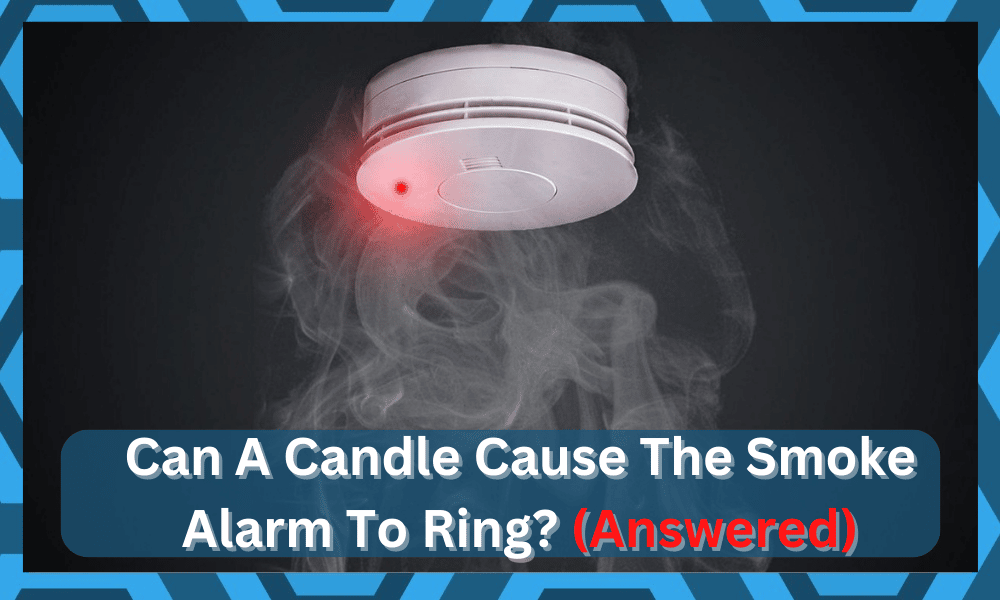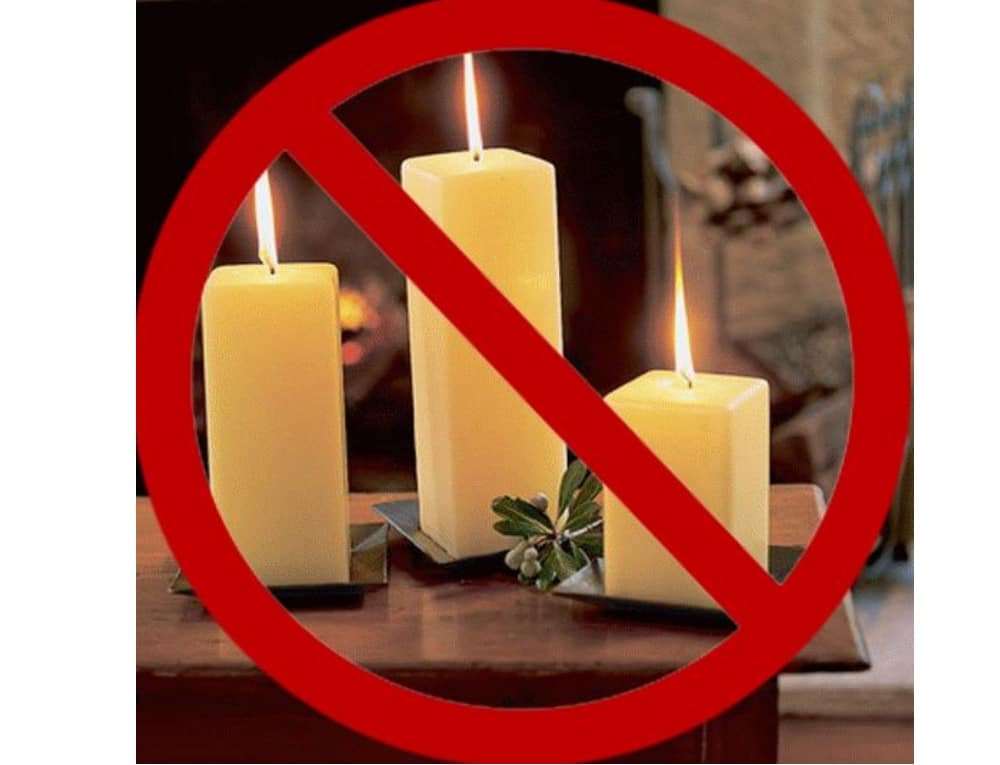
Have you ever been in the living room of your home with your family, enjoying the warmth of your favorite candle, when all of a sudden you hear an annoying beeping sound of alarm?
It turns out that the obnoxious beeping isn’t originating from thin air.
Your smoke alarm just went off because of the apparently harmless candle that you were enjoying so much, but how did it happen?
Does the combustion of wax really produce smoke? And what measures may you take to put a stop to it?
Can A Candle Cause The Smoke Alarm To Ring
Here is the information you need to know about smoke alarms and candles.
- The Problem
There’s nothing that smells quite like a scented candle, and there’s certainly nothing quite as romantic as lighting one for your significant other.

However, if you’re worried about accidentally setting off your smoke alarm with your scented candle, you’re not alone.
A lot of people are concerned that their candles might set off their smoke alarms, but it’s actually pretty rare.
In fact, according to Underwriters Laboratories (UL), only 2 percent of all residential fire alarms in America are triggered by candles.
What is causing these false positives? how can we avoid them? Let’s take a look at some common causes of false alarms and learn how to prevent them from happening in our homes
- Large Candles Could Trigger the Smoke Alarms
In order to cause a smoke alarm to go off, your candle would have to be unusually large. This doesn’t mean you need to switch out every single candle in your house.
A small votive or tealight will not set off a smoke alarm. If your scented candles are small and relatively clean burning, there’s little reason for you to stop using them in your home.
But if they are large and burn very hot, it may be best to keep them outside of your bedroom.
Even with smaller candles, however, always exercise caution when burning them near flammable items like curtains or bedding.
Remember that fire can spread quickly—and while most people think of their homes as safe havens from fires (after all, we don’t light campfires indoors), fires do happen at home too.
- Scented Candles Can Set Off Smoke Detectors
Many homeowners often assume that scented candles won’t trigger their smoke detectors. Unfortunately, if a candle is burning too close to your smoke detector it can set off an alarm.
If you have a large room and want to burn multiple candles at once, you may want to consider investing in larger-sized candles or using unscented ones instead.
This will help ensure that they don’t pose as much of a risk when burned too close to your smoke detector.
If you have any questions about whether or not your candle could be causing issues with your home’s fire safety equipment, we can help answer any questions you might have!
- Keep Your Candles Away From Electronics
It’s understandable to want to set a candle-lit atmosphere while enjoying your favorite television show, but it may be setting off your smoke alarm.
Electronics and appliances produce lots of electromagnetic interference (EMI) that can cause a fire alarm or smoke detector in your home to go off.
The best way to avoid an EMI false positive is to keep electronics at least three feet away from any flames.
Make sure you place candles on sturdy surfaces—and not on top of papers or rugs—to prevent them from tipping over.
You should also never leave candles unattended when they are lit, especially around children and pets.
Make sure you extinguish them before going to bed or leaving your house for extended periods of time.
- The Oily Residue is on Fire
Burning candles generate carbon soot and combustible greasy residue. Some of your candle’s wax may leak into the bottom while it burns.
As molten wax cools, it produces a fragile shell and hardens into a waxy layer.
When you blow out a candle, the hot wax might spill into the candle holder, posing a fire hazard and setting off your smoke alarm.
After blowing out candles, remove any greasy residue with soap and water before relighting.



